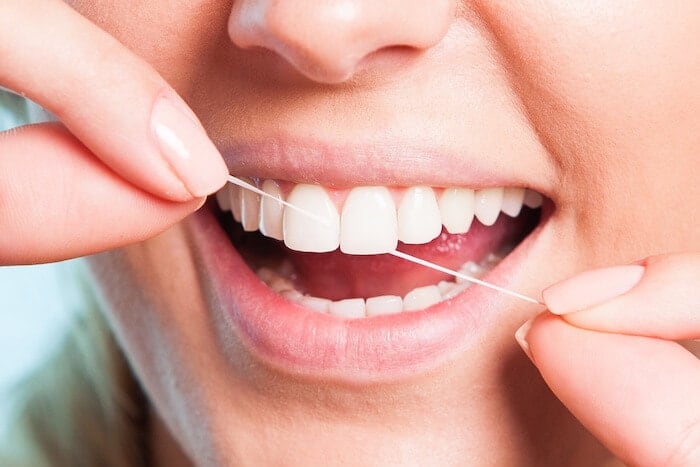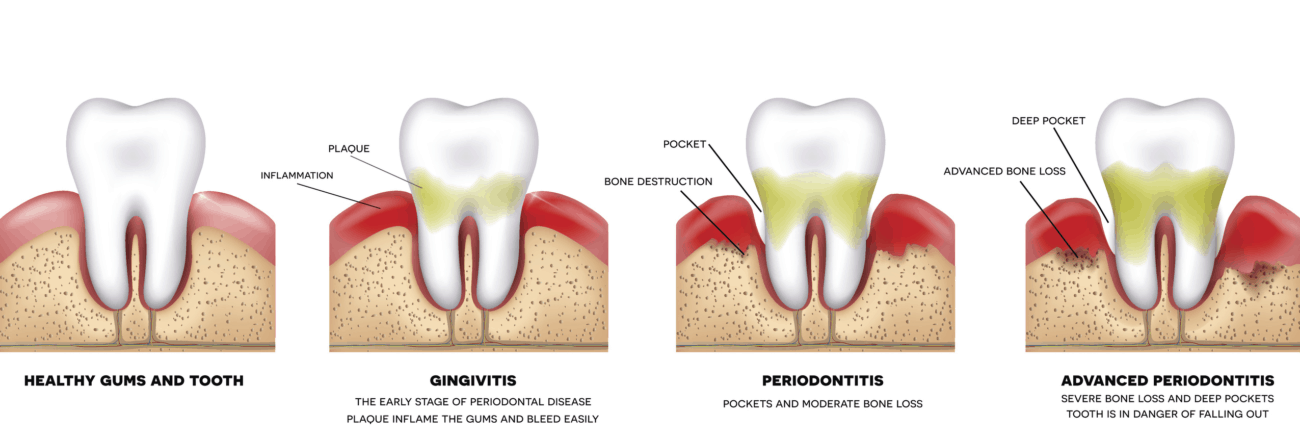Bad breath, medically known as halitosis, is a common and often embarrassing problem for most adults. The American Dental Association reported that some studies showed that almost 50% of adults experience it at some point in their life! While most cases of bad breath are easy to fix, sometimes the culprit behind the problem can be cause for alarm. We’re going to go over some of the most common explanations for bad breath and what you can do to stop it.
Common Causes
Poor Oral Hygiene. Poor oral hygiene is one of the most common causes of bad breath. Food particles find their way in between teeth and onto the tongue. Lack of or improper flossing and brushing can leave these particles behind to start building up an unpleasant smelling plaque. When this plaque starts hardening, an inflammation process starts the beginning stages of periodontal disease. This makes the smell worsen more.
Infections in your mouth. Dental infections as a result of tooth decay, abscesses, or sores from dentures can cause odors.
Tobacco. Smokeless tobacco and cigarettes are a very common origin of bad breath and negatively can accelerate the progression of periodontal disease.
Dry Mouth. Decreased saliva production oftentimes leads to halitosis. Dry conditions in the mouth mean less plaque and food debris is rinsed away. Several factors cause dry mouth such as medications, alcohol use, and certain health conditions such as Sjogren’s syndrome, diabetes or HIV/AIDS.
Food. Coffee, spicy foods or foods with strong smells are digested and generally emit strong odors.
Metabolic Disorders or Diets. Diets where fats are broken down often result in the release of large amounts of strong-smelling chemicals called ketones. These diets are usually low in carbs and high in fats. Metabolic disorders, such as diabetes, sometimes produce these strong-smelling ketones, especially if diabetes or disorder is uncontrolled.
Diseases and Disorders. Both chronic reflux (GERD) and postnasal drip are examples of disorders where fluids release from parts of your body and flow into your oral cavity. These fluids are both unpleasant smelling and foul-tasting.
Mouth, Throat and Nose conditions. We already discussed infections in mouth as being a source but infections of the throat and nose can also produce a stench. Foreign particle lodgment produces bad breath, examples are food lodged in the tonsils and foreign particles in the nose, often seen in small children.
Prevention and Remedies
Better oral hygiene. Regular brushing, flossing and dental cleanings will dislodge food particles and prevent that smelly plaque from accumulating. Using a tongue scraper aids in removing plaque from your tongue better than the toothbrush alone. Try adding a bacteria-killing mouth rinse to your regimen as well. For tips on how to have better oral hygiene check out our early blog post!
See your dentist. Visit your dentist regularly so he or she can catch problems when they start early. Catching problems early mean less of a chance of having an unresolved infection or periodontal disease. If you believe you already have either of these discuss treatment with your dentist for not only curing your bad breath but improving your health as well.
Stop smoking tobacco or using smokeless tobacco. Not only will this add years to your life but make your breath much more minty clean.
Increase your daily water intake. Hydration is key when trying to lessen the effects of dry mouth. Drinking more water also aids in rinsing off that plaque and food debris that likes to stick around your mouth.
Decrease Dry Mouth. Chewing sugar-free gum or sucking on sugar-free melts or lozenges stimulates your saliva glands into producing more saliva. Also, the use of lubricating mouth rinses and gels are helpful to coat the mouth and lessen the effects of dry mouth.
Alter your diet. Avoid spicy foods or those with strong odors that can either cause lingering odors in your mouth or tend to cause digestion issues such as reflux. Limiting your alcohol consumption will help keep your mouth hydrated to avoid that bad breath.
Consult your medical doctor or an ENT doctor. If you believe the cause of your bad breath is from foreign particles lodging in your tonsils/nose/throat, GERD, chronic infections, postnasal drip or a metabolic disorder than consult a medical doctor to treat not only the bad breath but the more concerning underlying issue.
Schedule your appointment today for a cleaning and make sure you keep bad breath away!







